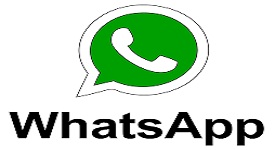LIS Links
First and Largest Academic Social Network of LIS Professionals in India
LIS Links Becoming More Social
Birthdays
Birthdays Today
Latest Activity
International Conference on Libraries for Sustainable Futures: Collaboration, Technology and Knowledge Sharing (Hybrid) at Thiruvananthapuram
Weed out of books
Replies to This Forum
-
Permalink Reply by Inderjit Kaur on February 25, 2011 at 1:13
-
Thanks mam.
-
Permalink Reply by Jayshree Dave on February 24, 2011 at 17:27
-
Weeding the collection is an essential task in the library because it ensures patrons will have access to the most useful and demanded materials. In a well-weeded library patrons are able to browse the stacks and make fortuitous discoveries. Conversely, a rarely weeded collection leaves useful books camouflaged by musty, out-of-date books.
- Plan the Process Before a single book is pulled or subscription cancelled, the staff needs to decide on all the policies and procedures of weeding. Prioritize sections to be weeded. Identify any staff members who have advanced knowledge of a field of study and have them weed within their fields. Create a time line for the weeding process and set goals for each participating staff member. Determine the criteria for discards. Many libraries go by the mnemonically derived "MUSTY" systems that encourages the weeding of books that contain "Misleading" or out-of-date information, are "Ugly" or damaged, may be "Superseded" by other books, have "Trivial" scholarly merit or are irrelevant for "Your" patrons.
- START Pulling Books Weed the stacks in small sections roughly the size of half a bookshelf. Pull the most obvious discards first, such as damaged and moldy books. Then pull books that are probable discards based on their publication dates. If a book need to be replaced with a new copy or updated version, tape a note to it.
- Back of House work Once the books are off the shelves, decide what will be definitely discarded. Not all the books pulled will be scrapped. Check the circulation statistics on materials so popular books aren't discarded and unpopular books aren't kept. Send damaged but useful books to Collection Development to be replaced. When in doubt over a book, ask for other librarians' opinions.
- Dispose of Materials Before throwing materials in the garbage, consider if they can be sold, donated or recycled, but do not be afraid to trash books.
- Maintenance Weeding is not a one-time activity; an effective collection is weeded continually. Regularly weed small sections to keep the collection fresh and avoid another wide-scale weeding
-
Permalink Reply by Inderjit Kaur on February 25, 2011 at 1:13
-
Thank U.
-
Permalink Reply by Mrs.K Kavita Rao on February 24, 2011 at 18:16
-
Criteria for Weeding.
CREW stands for Continuous Review, Evaluation, and Weeding. This method has been time tested and is considered so valuable that many libraries simply refer to the CREW method as their criteria for weeding in their collection development policies. however, that these criteria are for smaller libraries that normally do not have a heavy research emphasis. Academic libraries and specialized libraries would use very different criteria than those mentioned here.
The CREW method gives six general criteria for considering weeding an item from the library's collection. These have been summed up with the acronym MUSTIE
M= Misleading--factually inaccurate
U= Ugly--worn beyond mending or rebinding
S= Superceded--by a new edition of by a much better book on the subject
T= Trivial--of no discernible literary or scientific merit
I= Irrelevant to the needs and interests of the library's community
E= Elsewhere--the material is easily obtainable from another libraryFor more details visit the following link
ref:http://lili.org/forlibs/ce/able/course4/05criteria.htm
visit the following resource link to view the Weeding Manual fulltext free online:
-
Permalink Reply by Inderjit Kaur on February 25, 2011 at 1:15
-
Thanks mam for very descriptive answer.
-
Permalink Reply by Dr. Badan Barman on February 24, 2011 at 18:19
-
I think you should change the title of the forum post to
What is the process to weed out books?
-
Permalink Reply by Mohammad Yaseen on February 24, 2011 at 18:57
-
Mr. Badan,
I agree with your comments. the sentence is vague. Its doesn't
-
Permalink Reply by Inderjit Kaur on February 25, 2011 at 1:18
-
Thanks for ur comments.
-
Permalink Reply by Inderjit Kaur on February 25, 2011 at 1:16
-
Thanks for correction sir.
© 2026 Created by Dr. Badan Barman.
Powered by
![]()
